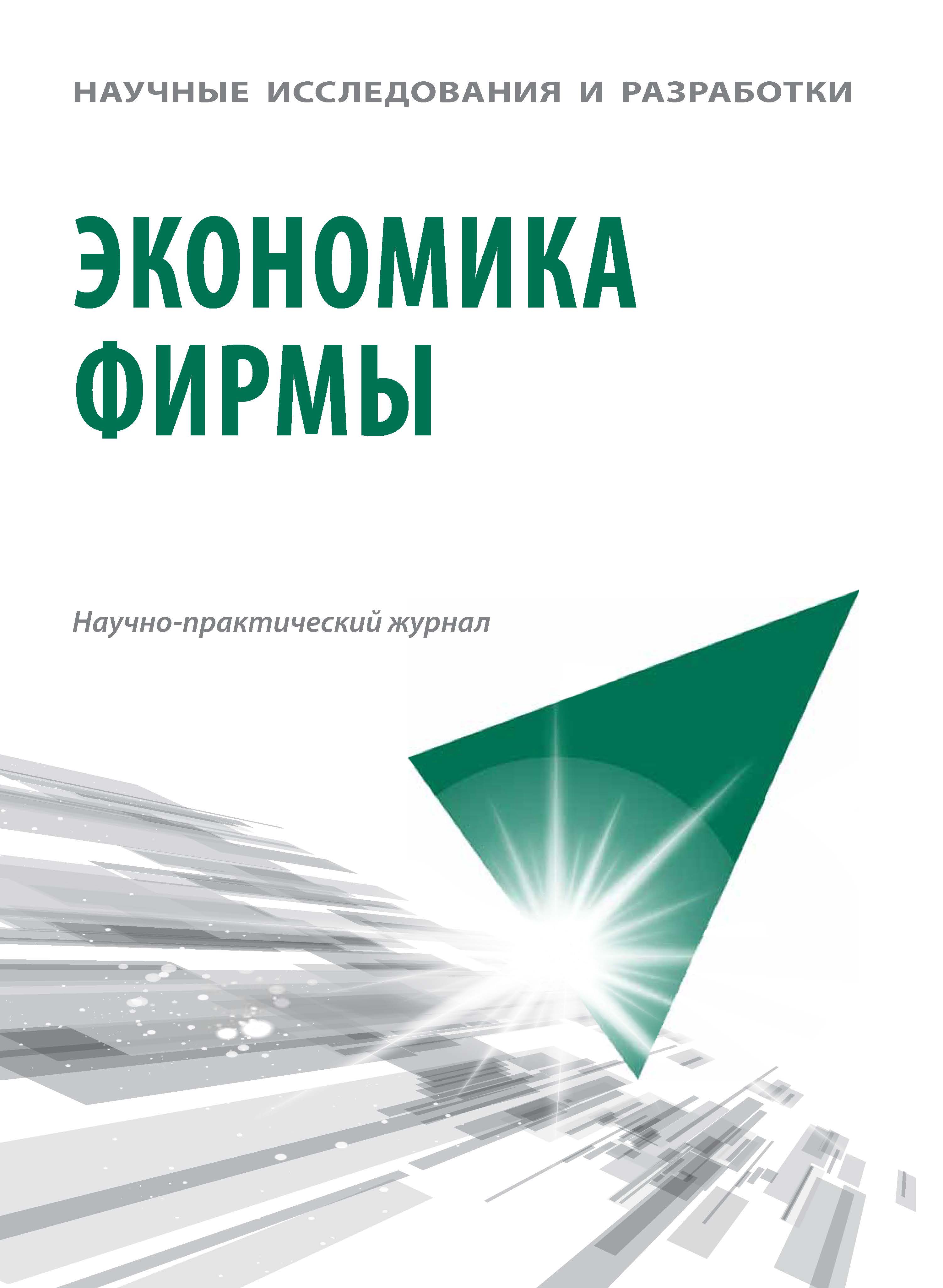Russian Federation
Russian Federation
The article deals with the topical issues of effective formation and implementation of professional standards, taking into account the modern needs of Russian companies in qualified personnel capable of ensuring long-term economic growth in the conditions of development of the digital economy. The most common problems associated with the transition to a new system of professional qualifications of employees in various fields of economic activity, including oil and gas companies, are identified.
professional standard, the digitalization of the economy, the skill levels of the national qualifications framework
1. Babynina L.S. Podgotovka kadrov dlya cifrovoy ekonomiki // Lomonosovskie chteniya-2018. Sekciya ekonomicheskih nauk. «Cifrovaya ekonomika: chelovek, tehnologii, instituty»: sbornik statey. - M. : Ekonomicheskiy fakul'tet MGU im. M.V. Lomonosova, 2018. - S. 472-479. EDN: https://elibrary.ru/ZBSEYP
2. Gimpel'son V.E., Kapelyushnikov R.I., Karabchuk T.S. Vybor professii: chemu uchilis' i gde prigodilis'? [Choice of profession: what did you study and where did you find useful?]. Ekonomicheskiy zhurnal VShE [Economic Journal of the HSE]. 2009, I. 2, pp. 172-216. EDN: https://elibrary.ru/KRRTYR
3. Gorshkova O.V. Professional'nye standarty, sertifikatsiya personala, obshchestvenno-professional'naya akkreditatsiya: mesto i rol' v razvitii kadrovogo potentsiala strany [Professional standards, personnel certification, social and professional accreditation: place and role in the development of the country's human resources]. Vlast' i upravlenie na vostoke Rossii [Power and administration in the east of Russia]. 2012, I. 3, pp. 98-104. EDN: https://elibrary.ru/PDTUMZ
4. Doklad o chelovecheskom razvitii v Rossiyskoy Federatsii za 2018 god [Human Development Report in the Russian Federation for 2018]. Moscow: Analiticheskiy tsentr pri Pravitel'stve Rossiyskoy Federatsii Publ., 2018. 172 p.
5. Dolzhenkova Yu.V., Babynina L.S. Vnedrenie professional'nykh standartov: novye vozmozhnosti i vyzovy [The introduction of professional standards: new opportunities and challenges]. Samoupravlenie [Self-management]. 2019, V. 2, I. 1 (114), pp. 205-207. EDN: https://elibrary.ru/ZAQTMT
6. Kanter D.S. Vliyanie obrazovatel'no-professional'nykh nesootvetstviy na dokhod i udovletvorennost' rabotoy: analiz dannykh 18-y volny RMEZ NIU VShE [The impact of educational and professional inconsistencies on income and job satisfaction: analyzing data from the 18th wave of the RLEMF HSE]. Vestnik Rossiyskogo monitoringa ekonomicheskogo polozheniya i zdorov'ya naseleniya NIU VShE (RLMS HSE) [Bulletin of the Russian Monitoring of the Economic Situation and Health of the Population HSE (RLMS HSE)]. Moscow: NIU VShE Publ., 2018, pp. 172-188. Available at: https://www.hse.ru/data/2018/07/04/1152917051/Vestnik%20RMEZ%20NIU%20VShE%202018.pdf (accessed 19 May 2019). DOI: https://doi.org/10.17323/978-5-7598-1825-0_172-188; EDN: https://elibrary.ru/YAUPUT
7. Martynov V.G., Eremina I.Yu., Kibovskaya S.V., Rudenko G.G., Dolzhenkova Yu.V. Professional'nye standarty v natsional'noy sisteme professional'nykh kvalifikatsiy neftegazovogo kompleksa [Professional standards in the national system of professional qualifications of the oil and gas complex]. Neftyanoe khozyaystvo [Oil industry]. 2017, I. 2, pp. 26-29. EDN: https://elibrary.ru/YGGMRT
8. Strategiya razvitiya informatsionnogo obshchestva v Rossiyskoy Federatsii na 2017-2030 gg. Utverzhdena Ukazom Prezidenta Rossiyskoy Federatsii ot 9 maya 2017 g. № 203 [Strategy of the Information Society Development in the Russian Federation for 2017-2030 Approved by the Decree of the President of the Russian Federation dated May 9, 2017 No. 203].
9. Trudovoy kodeks Rossiyskoy Federatsii (deystvuyushchaya redaktsiya) [Labor Code of the Russian Federation]. Informatsionno-pravovoy portal GARANT [GARANT legal information portal]. Available at: https://base.garant.ru/12125268/ (accessed 19 May 2019).
10. Tikhomirov L. K effektivnosti cherez tsifrovizatsiyu. Kompleksnoe tsifrovoe reshenie dlya neftegazodobyvayushchego predpriyatiya [To efficiency through digitalization. Integrated digital solution for oil and gas enterprises]. Gazovyy biznes [Gas business]. 2018, I. 4, pp. 15-17.
11. Trendy tsifrovoy ekonomiki: bazovye navyki programmirovaniya prigodyatsya vsem [Trends of the digital economy: basic programming skills will be useful to everyone]. WorldSkills Russia [WorldSkills Russia]. 2017. Available at: http://worldskills.ru/media-czentr/novosti/trendyi-czifrovoj-ekonomiki-bazovyie-navyiki-programmirovaniya-prigodyatsya-vsem.html (accessed 19 May 2019).
12. Upravlenie chelovecheskimi resursami organizatsii [Organization human resources management]. Moscow: Knorus Publ., 2019. 584 p.
13. Fedchenko A.A. Professional'noe razvitie chelovecheskogo potentsiala [Professional development of human potential]. Vestnik VGU [Bulletin of VSU]. 2016, I. 1, pp. 112-113.
14. Tsifrovaya Rossiya: novaya real'nost'. 2017: Otchet Digital McKinsey [Digital Russia: a new reality. 2017: Digital McKinsey Report]. Moscow, 2017. 132 p. Available at: https://www.mckinsey.com/~/media/mckinsey/locations/europe%20and%20middle%20east/russia/our%20insights/digital%20russia/digital-russia-report.ashx (accessed 19 May 2019).
15. Babynina L.S. Podgotovka kadrov dlya tsifrovoy ekonomiki [Training for the digital economy]. Lomonosovskie chteniya-2018. Sektsiya ekonomicheskikh nauk. «Tsifrovaya ekonomika: chelovek, tekhnologii, instituty» [Lomonosov Readings-2018. Section of Economic Sciences. “Digital economy: people, technologies, institutions”]. Moscow: Ekonomicheskiy fakul'tet MGU im. M.V. Lomonosova Publ., 2018, pp. 472-479.






